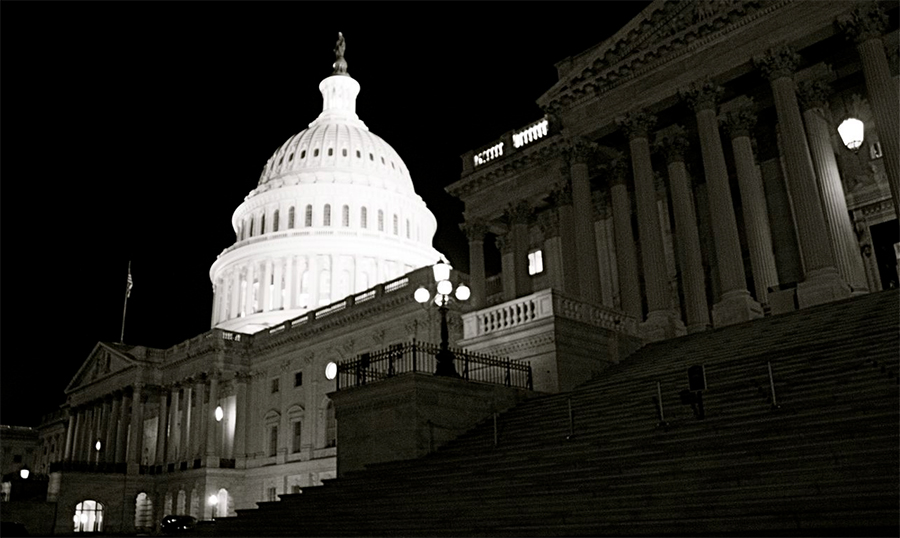There’s a change coming that could arguably make it a lot easier for feds to snoop through your digital stuff, even if you’ve done nothing but been the victim of some malware. If Congress doesn’t act to stop it, that change to Rule 41 becomes effective basically at midnight tonight. So a handful of Senators who want to block it are all but begging their colleagues to act now. [More]
privacy

Uber: No, We’re Not Going To Sell User Information
Late last week, Twitter began to light up with claims that Uber had changed its terms of service to give the company the right to to modify and sell users’ data — not a minor concern for any privacy-minded consumer. However, Uber points out that the specific clause at the center of this mini-controversy is not new, not unique to the ride-hailing service, and doesn’t give the company that god-like authority some people are claiming. [More]
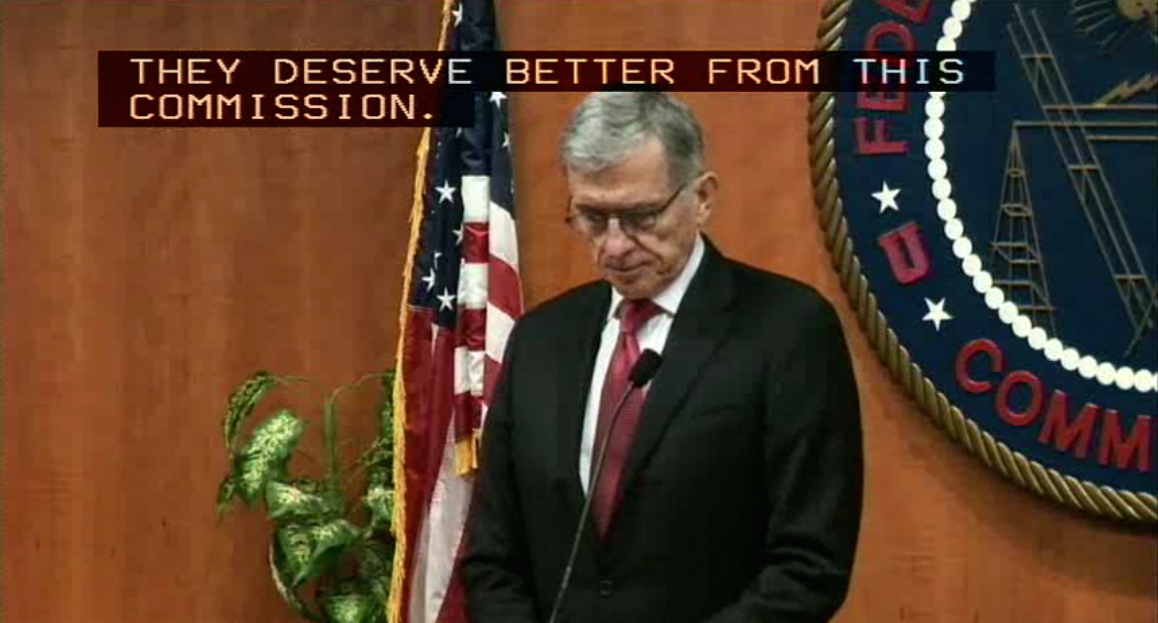
FCC Chair To Trump Administration: Putting Industry’s Wants Over Public Interest Would Be A “Real Mistake”
This morning, the FCC was supposed to consider a number of items during its monthly open meeting, but yesterday afternoon the Commission suddenly deleted almost everything from the agenda, including matters related to expansion of wireless broadband networks, standardized roaming on wireless, competition in business data services, and requirements on accessibility to certain programming to visually impaired Americans. After today’s brief meeting, FCC Chair Tom Wheeler spoke publicly about why these items were removed, and indirectly called on President-elect Donald Trump’s incoming administration to put consumer protection before the desires of the telecom, pay-TV, and wireless industries. [More]

Access To LinkedIn Now Officially Blocked In Russia
In 2014, the Russian government introduced a law requiring that any online service storing personal data of Russian people must store that particular data within the country’s borders. Today, career-networking site LinkedIn became the first major U.S. website to be blocked because of this new law. [More]
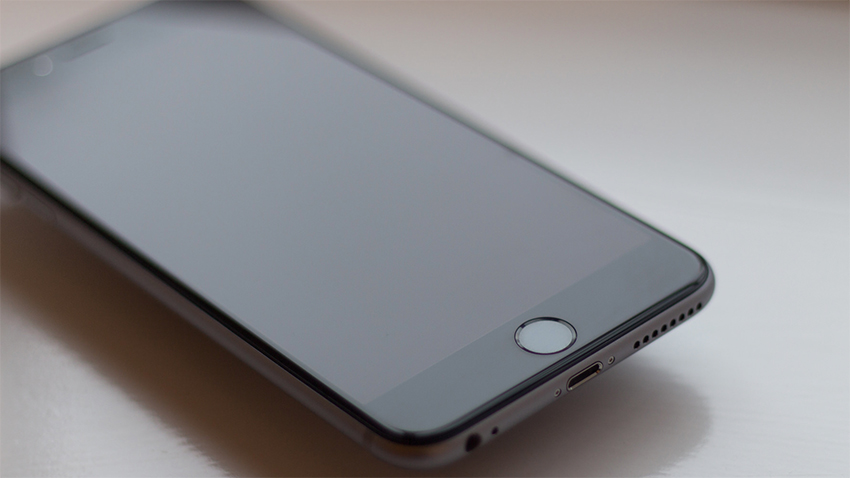
Your Phone Sends All Your Call Records To Apple When iCloud Is Turned On
You’ve got a computer in your pocket that works as a camera, a video recorder, an internet connection, a game console, and everything else. And odds are good there’s some data on there that you want backed up safely, and that you use a cloud storage service to do just that. But your smartphone is, indeed, a phone — and your good old-fashioned calling records may be going places and getting stored in ways you do not intend. [More]

Should Your Job Be A Factor In How Much You Pay For Auto Insurance?
While many consumer advocates believe that drivers’ auto insurance rates should be based on factors that only relate directly to their activity on the road, many states allow insurers to use a wide variety of considerations — including education, marital status, homeownership, and occupation — to help set those rates? With one state looking to halt the use of occupation data, we wanted to know what our readers think. [More]
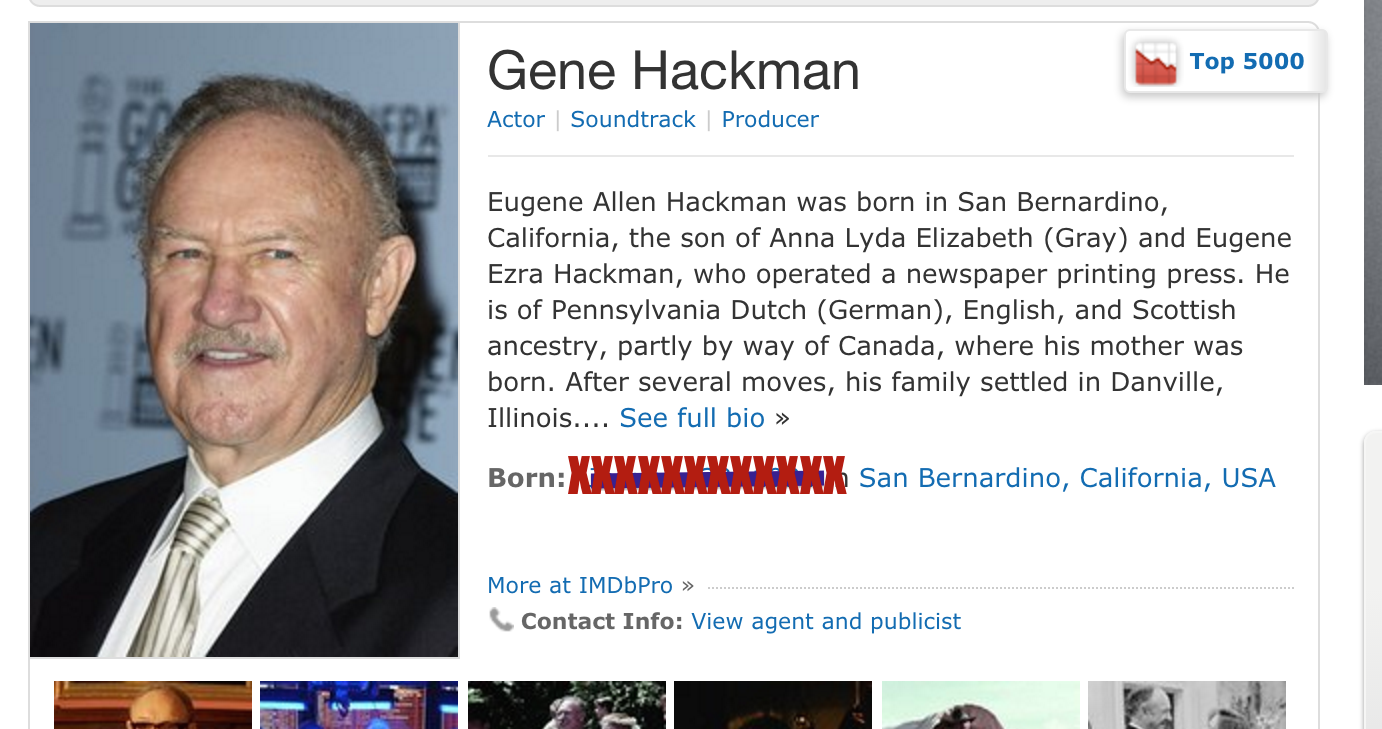
Why IMDb May Soon Have To Delete Actors’ Ages From Website
The Internet Movie Database has long been the public’s go-to site for generally accurate information about movies, TV shows, and the people who make them. Many celebrity profiles have their ages and dates of birth listed on IMDb, but that may soon come to an end if a new California law is allowed to stand. [More]

Should Police Need A Warrant To Obtain Your Cellphone Location Data?
On TV and in the movies, when the police want location information on a suspect’s cellphone, the world-weary detectives just mosey into the office of a wireless company and bully/sweet-talk the receptionist into handing over this information by saying things like “You don’t want us to have to wait here while we get a warrant, do you?” In the real world, it’s not that simple, and the question of whether or not an actual warrant is needed has yet to be resolved. [More]
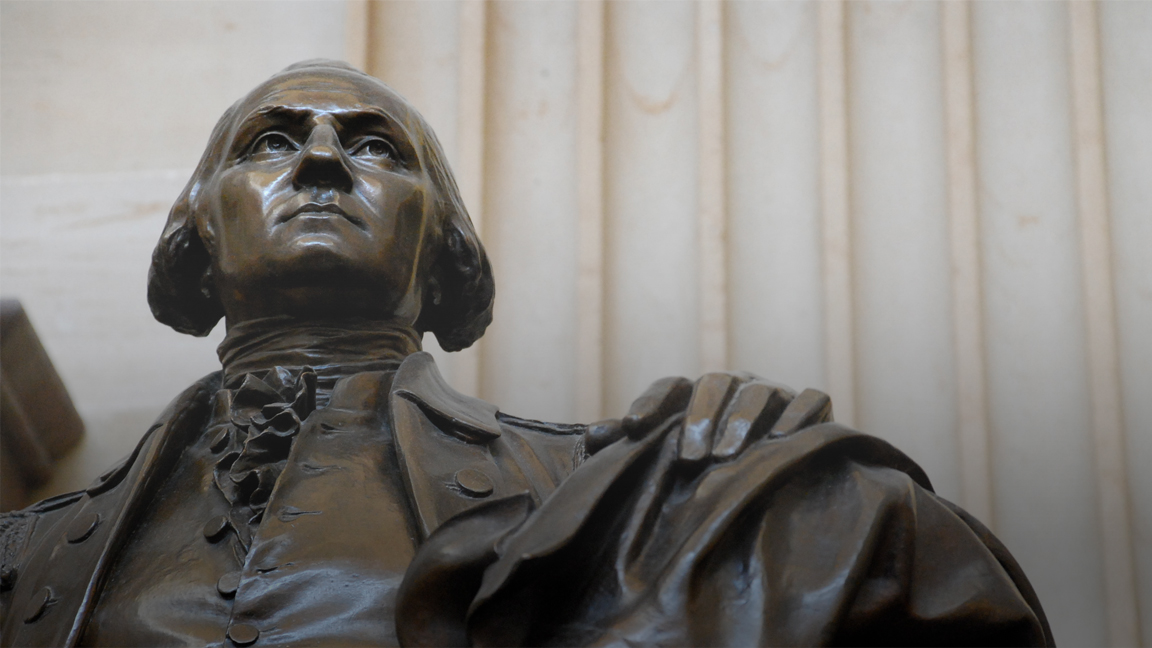
Judge: George Washington Did Not Care About Biometric Data Storage
We live in a world that’s constantly throwing new technology, new business, and new quandaries at us. Facebook, Google, Amazon, Uber, Twitter, and the smartphone that we use to access them all on either didn’t exist, or existed very differently, as recently as a decade ago. The framework for our legal system, however, was built in the 18th and early 19th centuries. And that means sometimes trying to apply to the latter to the former can result in entertaining, if accurate, dissonance. [More]

23 Lawmakers Want To Know What DOJ Would Do With Expanded Hacking Authority
The U.S. Congress has a month to decide on what it should do about a pending rule change that would arguably grant federal law enforcement agencies more authority to remotely hack into computers. Congress can let this amended rule go into effect by doing nothing, so before they let their idleness get the better of them, a group of nearly two-dozen members of the House and Senate are now pushing the Justice Department for more details. [More]
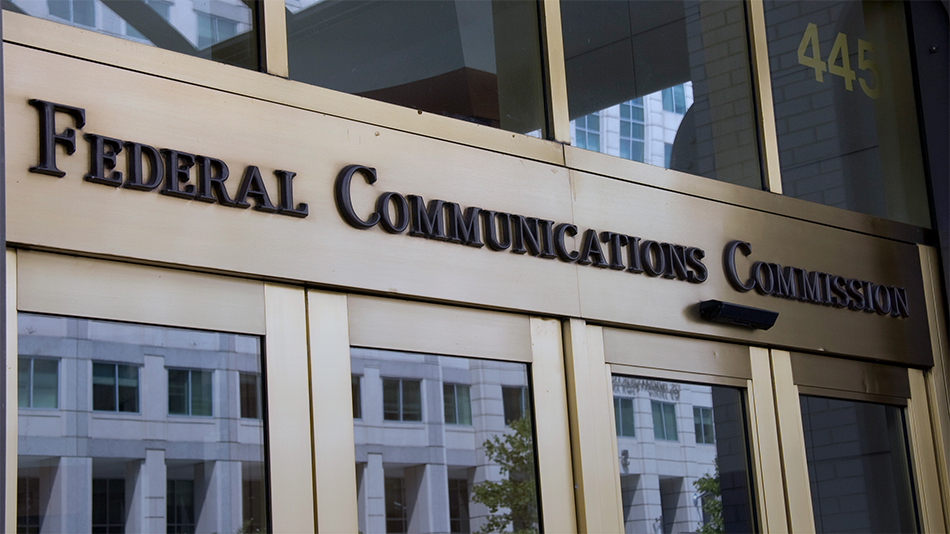
FCC Adopts New Privacy Rule Limiting What ISPs Can Do With Your Personal Data
Privacy is a complicated thing, especially online. While we all know companies like Google, Facebook, and Amazon — edge providers, in the parlance of regulators — collect and use our data, fewer of us think about how much the owners of the metaphorical pipes can see passing through them. So to that end, the FCC voted today to adopt rules designed to limit how much of internet subscribers’ data ISPs can sell, share, and trade, and to let customers have some more control over the uses of their personal information. [More]

New Google Accounts Now Opted-In To Ad Tracking Features By Default
Remember when Google’s default setting was to maximize your privacy? Well, Google doesn’t. The internet’s biggest advertising company has now quietly shifted its baseline privacy behavior, so you’ll want to watch out if you’re creating any new accounts. [More]

Feds Use Search Warrant To Make Everyone In Building Unlock Their Phones
If the cops show up with a search warrant, well, you expect they can search the premises. But showing up with a warrant that says every single person on a certain property has to unlock their fingerprint-reading phones and present them for search, too? That’s… pretty surprising. And yet, it turns out, earlier this year, that’s what happened in California. [More]

Yahoo Explains Why It Turned Off Email Auto-Forwarding; Turns It Back On
Earlier this week, we told you about Yahoo Mail users complaining that they could no longer use the auto-forward function to have things from their Yahoo account forwarded to a different address. Now Yahoo is explaining why it turned off this function, and why it’s turned it back on. [More]

Subway Worker Accused Of Filming Women In The Restroom
A Subway employee in Seattle is facing charges of voyeurism and possession of child pornography after allegedly filming women in the restaurant’s bathroom without their knowledge. [More]

Final FCC Privacy Rule Won’t Ban Pay-For-Privacy, Will Require Some Opt-Ins
The FCC certainly is keeping busy this fall. After six months of mulling it over, commission chairman Tom Wheeler announced today that the final version of a privacy rule that would limit what your broadband carrier can do with your personal data is in fact real and on the agenda for the FCC’s October meeting later this month. [More]

Yahoo Calls Report Claiming It Snooped On Emails For U.S. Government “Misleading”
After a report this week claimed Yahoo built a tool specially designed to help U.S. intelligence and law enforcement agencies eavesdrop on its email users’ conversations, the tech company has issued another, lengthier response, without flat out denying anything. [More]


